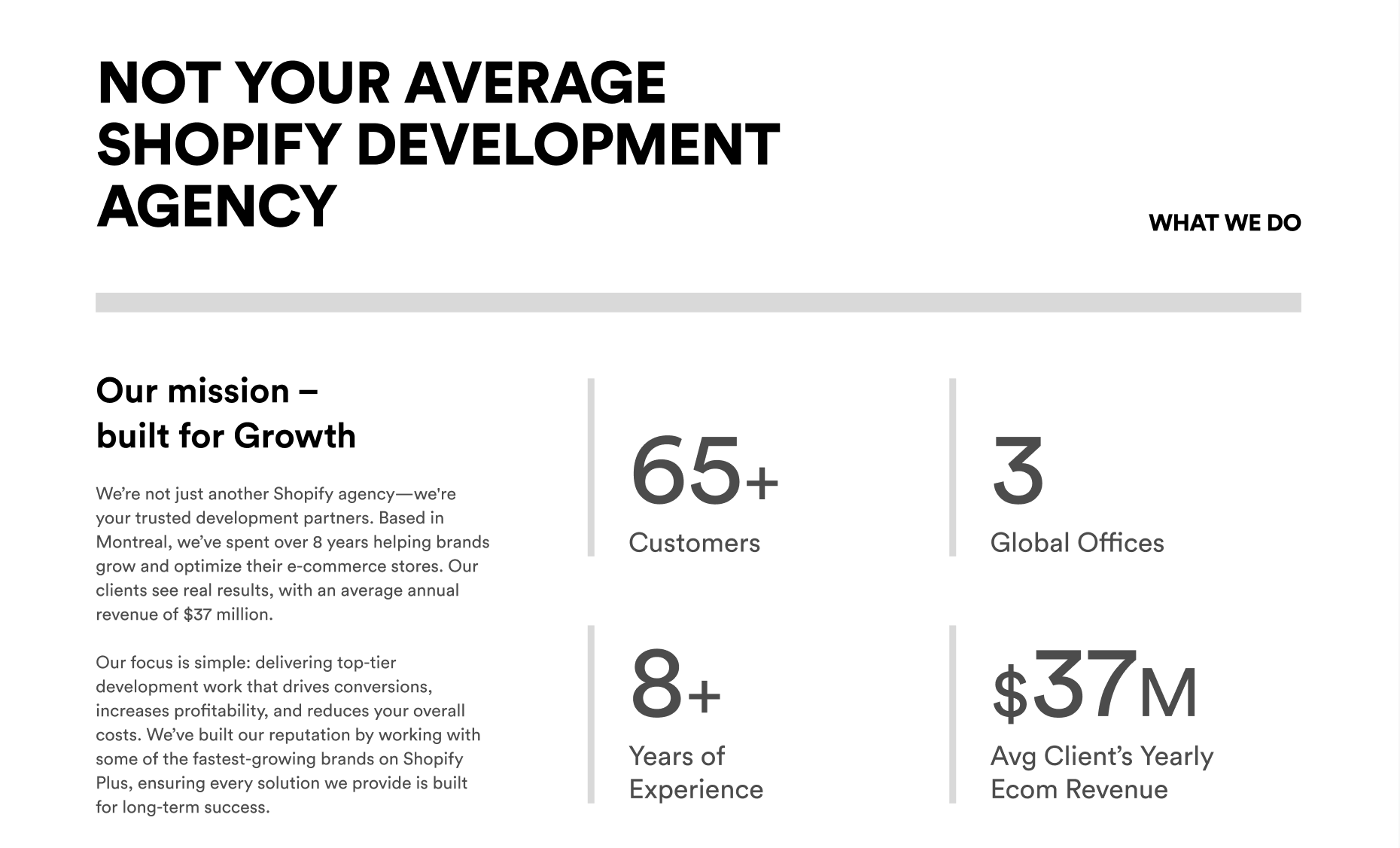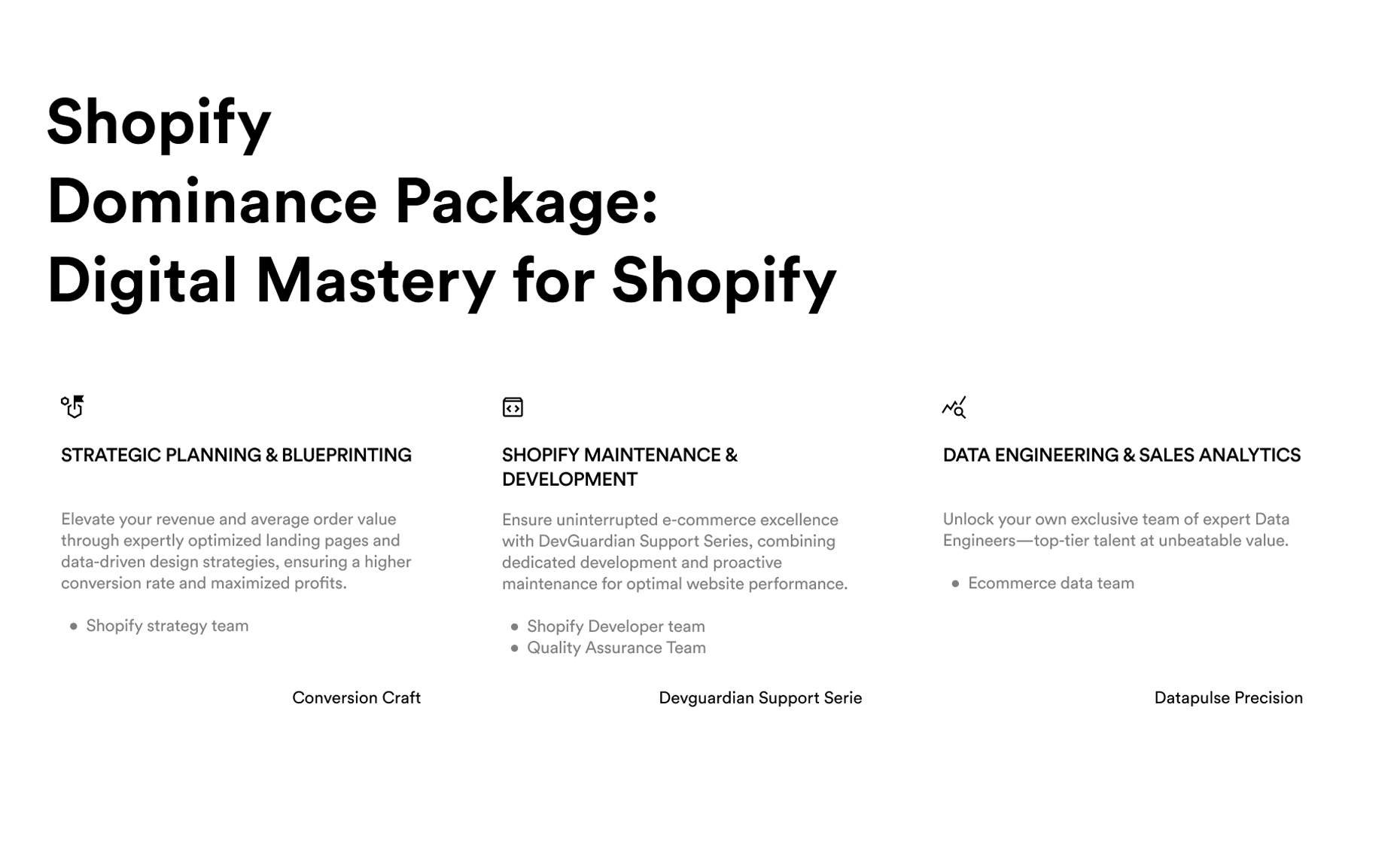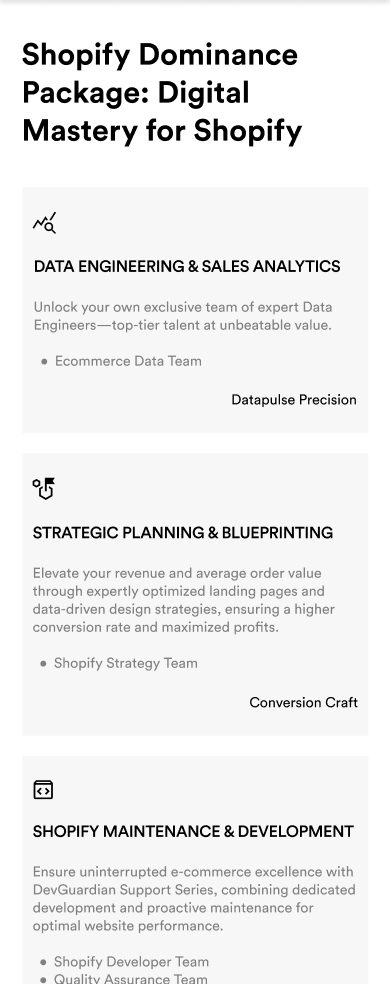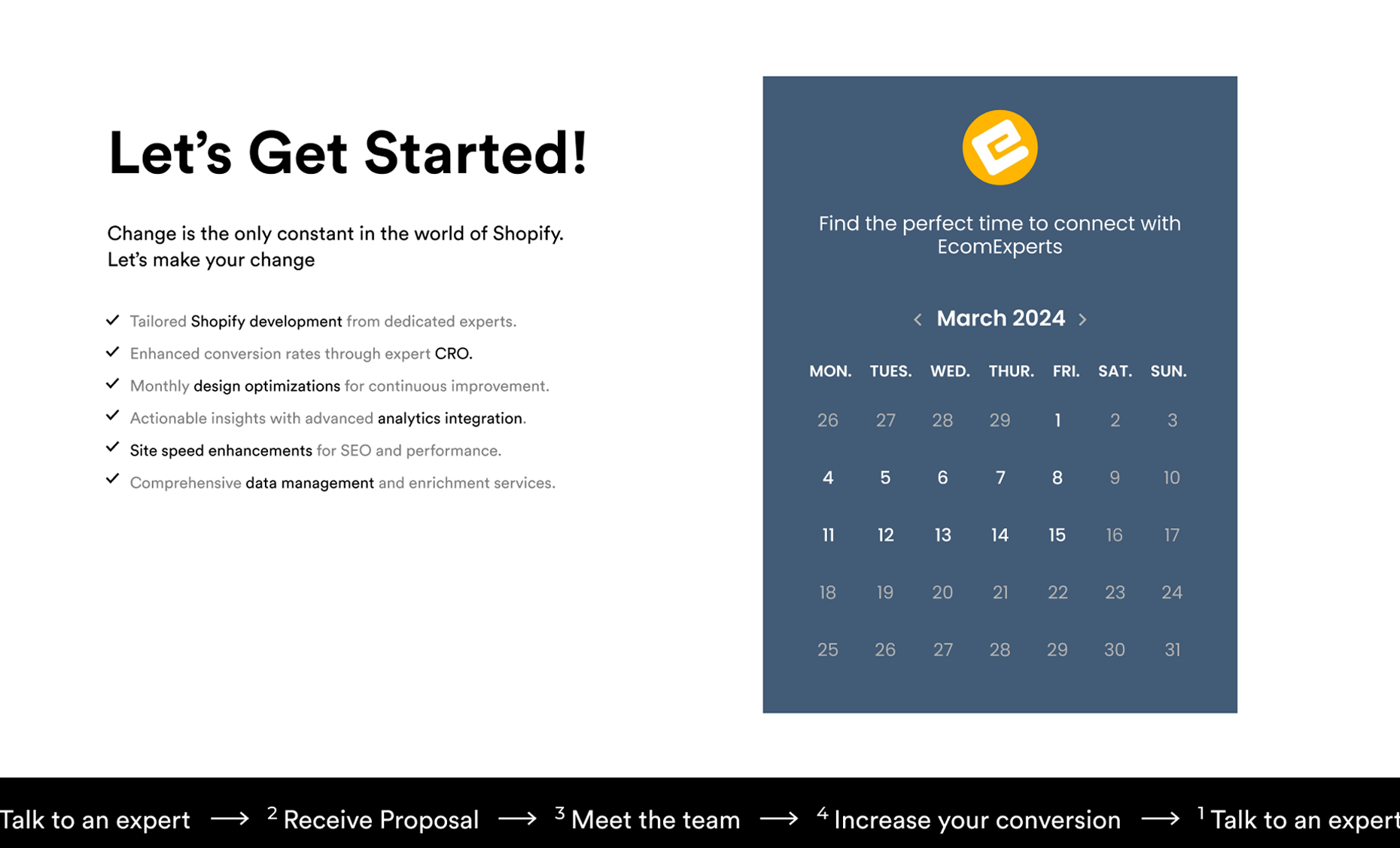Why AI is the Key to E-commerce Success
If you haven't tapped into AI for your e-commerce business, you’re missing out a big time.
AI isn’t just a fancy buzzword; it’s a toolkit that can transform how you connect with customers, boost sales, and keep up with a market that’s moving fast.
Picture this: what if you could predict what your customers want before they even start browsing? AI lets you do that.
With AI, you’re not just reacting to data; you’re making moves that get ahead of customer expectations. From personalizing shopping experiences to automating repetitive tasks, AI allows you to focus on what matters—growing your business.
Ready to see how AI can fuel your e-commerce growth? Let’s dive into the specifics.
How AI Gives E-commerce a Competitive Edge
AI isn’t just adding efficiency to e-commerce; it’s unlocking growth potential that traditional methods can’t touch.
Today’s consumers expect fast, personalized, and seamless shopping experiences, and AI gives you the tools to deliver just that.
Here’s how AI drives results:
- Customer Behavior Prediction: AI algorithms analyze past purchases, browsing habits, and even abandoned carts. This insight allows you to predict what customers are most likely to buy next and tailor recommendations accordingly, increasing chances of conversion.
- Enhanced Marketing: AI can optimize your ad campaigns by targeting the right audience with the right message at the right time. Think of AI as your data-driven guide, showing you where to focus your efforts to get the highest return on ad spend.
- Automation that Matters: Tedious tasks, like sorting through customer queries or updating product availability, can be automated with AI. This frees up your team to focus on strategic areas that drive growth, like developing new product lines or refining customer engagement.
Incorporating AI into your business means you’re not just keeping up with the competition—you’re building a smarter, more responsive brand. And that’s the key to lasting growth in e-commerce.
Key AI Use Cases in E-commerce
AI is transforming e-commerce, making it possible for brands to create highly personalized, efficient, and responsive customer experiences.
Here are some powerful AI applications that are helping e-commerce businesses boost sales and streamline operations:
- Personalized Product Recommendations: AI analyzes browsing and purchase history to suggest products tailored to individual tastes, increasing purchase likelihood.
- Inventory Forecasting: Predicts product demand, helping maintain optimal stock levels and avoid costly stockouts.
- AI-Powered Customer Support: Chatbots provide instant answers to FAQs, assist with orders, and offer product guidance 24/7.
- Dynamic Pricing Strategies: AI tracks competitor prices and demand patterns, adjusting prices in real time to stay competitive.
- Visual Search Capabilities: Allows users to find products with images, making it easier to locate specific items.
- Automated, Targeted Emails: AI tailors email campaigns based on customer behavior, driving engagement and repeat sales.
- Fraud Detection: Identifies suspicious activity patterns to protect against fraud, improving site security and trustworthiness.
- Sentiment Analysis for Reviews: Analyzes customer feedback to identify trends in product satisfaction or issues.
By integrating these AI solutions, e-commerce brands can enhance the shopping experience, streamline operations, and maximize sales.
It’s about leveraging data and predictive insights to not only meet but exceed customer expectations.
How AI Can Directly Boost E-commerce Sales
AI isn’t just about automation; it’s about creating a smarter, more personalized shopping experience that keeps customers coming back.
Here’s how AI-driven tactics can help maximize your sales:
- Improved Product Discovery: AI-powered search and filtering tools help customers find what they want quickly, increasing the likelihood of purchases.
- Dynamic Upselling and Cross-Selling: AI analyzes browsing patterns to suggest relevant add-ons, boosting the average order value with tailored upsells and cross-sells.
- Real-Time Customer Insights: AI provides brands with immediate insights into customer preferences, enabling quick adjustments to campaigns, pricing, and promotions based on real-time data.
- Cart Abandonment Recovery: AI-powered reminders and personalized follow-up emails encourage customers to complete purchases, reducing cart abandonment rates.
- Automated A/B Testing: AI helps e-commerce brands test website elements, such as CTA buttons or layout, to identify what resonates best with users, optimizing for conversions.
- Customized Discounts and Offers: AI tailors discounts based on customer segments, offering targeted incentives that appeal to individual shopping habits.
- Sentiment Analysis: AI analyzes customer feedback on social media and reviews, identifying pain points and allowing brands to address concerns proactively.
- Improved Customer Lifetime Value: AI tracks customer behavior over time to personalize experiences, building stronger loyalty and increasing lifetime value.
Each of these applications allows e-commerce brands to provide a seamless shopping experience that drives loyalty and boosts sales.
Implementing AI in Your E-commerce Business: Where to Start
Starting with AI in e-commerce doesn’t have to be intimidating. By breaking it down into clear steps, you can integrate AI in a way that’s manageable and tailored to your business needs. Here’s how:
- Assess Your Needs: Begin by identifying specific challenges or areas for growth. Do you want to improve customer support, personalize the shopping experience, or optimize inventory? Prioritizing these needs will help you select the most relevant AI tools.
- Start with Simple Tools: Don’t jump into complex systems right away. Begin with easy-to-implement tools like AI chatbots for customer service or recommendation engines to boost product discovery. These initial AI solutions can make an immediate impact and give you insights into customer preferences.
- Select Compatible AI Platforms: Choose AI solutions that integrate well with your current systems. For example, Shopify offers several AI-powered plugins that handle everything from dynamic pricing to automated marketing, making it easier to incorporate AI without a full tech overhaul.
- Leverage Your Data: AI relies on data to work effectively. Ensure you’re collecting useful data points—like customer behavior, purchase history, and browsing patterns—so your AI tools can provide personalized experiences that engage customers and drive conversions.
- Measure and Refine: AI requires ongoing evaluation to deliver optimal results. Regularly check the performance of your AI-driven solutions and be prepared to adjust strategies based on the data. Continuous optimization helps you maximize ROI and ensures AI remains aligned with business goals.
By following these steps, you can integrate AI gradually, making it an asset that grows alongside your e-commerce business.
Time to Let AI Boost Your E-commerce Game
AI isn’t just a trend; it’s a powerful tool for e-commerce brands looking to grow and innovate. From personalized shopping experiences to efficient inventory management, AI solutions offer a competitive edge that keeps customers engaged and drives sales.
As e-commerce continues to evolve, brands that invest in AI will be the ones leading the charge. Start with small, manageable tools, and let AI become an essential part of your business strategy. Embrace AI now, and watch as it transforms your e-commerce growth.
AI in E-commerce FAQs
Q1. How does AI improve e-commerce sales?
AI enhances e-commerce sales by personalizing the shopping experience, predicting customer behavior, and automating marketing, which helps increase conversions and customer loyalty.
Q2. What are popular AI tools for e-commerce?
Popular AI tools for e-commerce include chatbots for customer support, recommendation engines for product discovery, and predictive analytics for inventory management.
Q3. How can AI help with customer support in e-commerce?
AI-powered chatbots handle common inquiries 24/7, providing quick answers, improving customer satisfaction, and freeing up support teams for complex issues.
Q4. Is AI necessary for a small e-commerce business?
While not essential, AI can benefit small businesses by automating tasks, enhancing personalization, and improving efficiency, making it easier to scale.
Q5. What is the role of predictive analytics in e-commerce?
Predictive analytics in e-commerce helps forecast demand, manage inventory levels, and optimize pricing, which leads to better sales outcomes and reduces operational costs.












